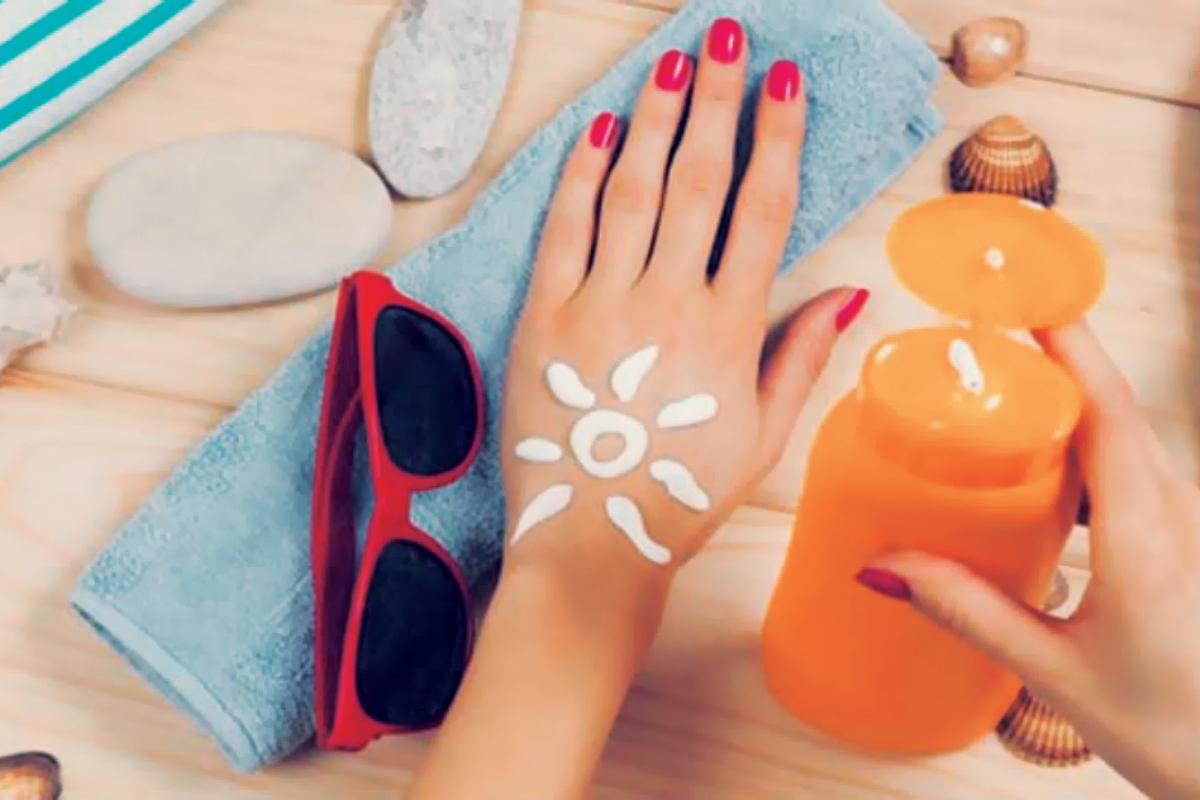
How to pick the right sunscreen for your skin type
You have a good chance of picking any sunscreen that catches your eye. However, wearing any sunscreen is better than wearing none at all and the best way to protect your skin is to choose a sunscreen that is tailored to your skin type. In light of the dangers associated with sun exposure, selecting the right SPF (Sun Protection Factor) is an important step – regardless of your skin type.
The right broad-spectrum sunscreen will help you stay comfortably protected – whether you have dry or oily skin, combination or normal skin, or acne prone skin. It also helps prevent premature aging and sun damage and reduces the chance of skin cancer as well.
By educating yourself, you may confidently choose the right sunscreen to meet your specific needs, providing you with the finest protection from the sun’s damaging rays when applied on a regular basis.
When shopping for sunscreen, keep the following factors in mind:
- Mineral v. Chemical
Mineral sunscreen is formed of organic materials, often titanium dioxide or zinc oxide. By serving as a physical barrier between your skin and the sun, these sunscreens deflect the sun’s UV radiation away from your skin.
Chemical sunscreens, which are commonly created with avobenzone, octinoxate, and oxybenzone, penetrate your skin and then reflect UV rays back. Studies show that mineral sunscreen is more durable and stays on the skin for a longer period.
- Water-resistance
A water-resistant sunscreen will keep you protected even if you swim or sweat. Some sunscreens are particularly water-resistant, extending their shelf lives even more. These sunscreens should still be re-applied, as instructed on the label.
- Broad spectrum
Dermatologists stress the need of choosing a broad-spectrum sunscreen that will shield your skin from UVB and UVA rays. In addition to causing skin cancer, UVB rays can make the skin red and sunburned. Along with photoaging or premature aging of the skin, UVA rays can potentially result in cancer.
- Sun Protection Factor (SPF)
Did you know that sunscreen loses some of its effectiveness after application? An SPF 30 sunscreen, for instance, provides coverage more akin to an SPF 15 sunscreen. In comparison to the length of time spent without sunscreen, the SPF rating on sunscreen indicates how long it would take for the sun’s UV rays to cause skin to become red. An SPF 30 sunscreen, for example, permits approximately 3% of UVB rays to reach your skin. Anything less than SPF 30 will not give adequate protection. Experts also advise wearing sunscreen at least 30 minutes before going outside.

How to pick a sunscreen for your skin type
- For oily and acne prone skin
Any sunscreen for oily skin must be non-comedogenic, which means it will not clog pores. If you have oily skin and a history of acne, this is very critical. An oily skin sunscreen should also be free of excessively nourishing ingredients and have a lightweight, non-greasy consistency that is easily absorbed.
- For dry skin
Individuals with dry skin will benefit from a more nutritious sunscreen, particularly if the moisturizing stage is skipped. Be on the lookout for sunscreens with moisturizing components like ceramides, glycerin and hyaluronic acid, which are all natural proteins that help the skin maintain moisture.
- For sensitive skin
According to experts, mineral sunscreens containing titanium dioxide or zinc as active components are often less irritating to the skin and can benefit individuals with rosacea, eczema, or allergies to perfumes or preservatives in particular.
Hyaluronic acid, nicotinamide/niacinamide, a type of vitamin B3, and vitamin C, which is necessary to produce collagen, are among the ingredients that can also be helpful.
- For normal to combination skin
Normal to combination skin does not require an oil-controlling or intensively moisturizing product, but it will benefit from a mild, non-comedogenic sunscreen that is unbelievably comfortable to use every day.
- For melanated skin
While melanin does offer some natural protection for the skin, it does not guarantee that patients are fully free from skin cancer. Those with melanated or darker skin, should search for sunscreens that are tinted or that rub in undetectably.
- For kids’ skin
Experts advise taking extra care when buying sunscreen for children because they are more prone to sunburns, especially in the summer. They also advise avoiding sunscreen and direct sun exposure for babies under six months. The best course of action is to keep a newborn in the shade and cover their skin with loose-fitting cotton clothing.
Sunscreen is a crucial component of a skincare routine that should also involve finding shade, avoiding UV exposure, and using protective apparel. It must also complement your other skincare products to easily integrate into your daily routine.
With so many sunscreen brands available in the market, it can be a daunting task to choose the best sunscreen for your skin and avoid common mistakes when purchasing one, but with these guidelines as mentioned above, you will know just what to look for! -Ends
Catch all the Bold News, Breaking News Event and Latest News Updates on The BOL News
Download The BOL News App to get the Daily News Update & Live News.












 Read the complete story text.
Read the complete story text. Listen to audio of the story.
Listen to audio of the story.